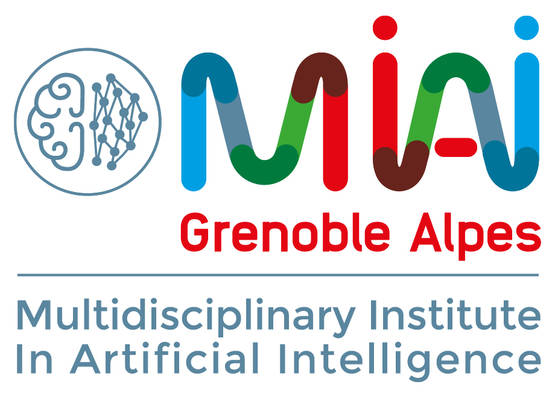MIAI: the AI Institute of Grenoble
The artificial intelligence EV Observe boosted by the experts of the AI Institute of Grenoble
Incident Management
Problem Management
Change Management
Request Fulfillment
Service Level Management
Knowledge Management
Service Asset and Configuration Management
Self-Service
IT Financial Management
Remote Support/Control
Background System Management
IT Process Automation
Incident Management Automation
Software Deployment
Cloud Service
Pricing
Free Trial
Deploy and Monitor
Alerts and Notifications
IT Health Status
Real-Time Dashboards
AIOps
Reports
Hypervision
Mobile App
Integrations
Looking to learn about all things ITSM, ESM, Self-Service, Knowledge Management, AI, and more? We've got you covered.
We’re committed to providing resources that help you address all of your ITSM software needs.
Stay up to date on our latest ITSM, ITOM or ESM webinars and events now
The artificial intelligence EV Observe boosted by the experts of the AI Institute of Grenoble
MIAI Grenoble Alpes is a multidisciplinary institute in Artificial Intelligence, based in Grenoble. This center of expertise is directed by Eric Gaussier, formerly head of the Grenoble Computer Laboratory (LIG).
In 2014, as part of a government project "Fond Unique Interministériel" - a program that allows the financing of R&D projects for a short or medium-term market launch by combining the skills of large companies, SMEs and laboratories, EasyVista and the LIG came together and began a succession of joint projects: in 6 years, 4 Artificial Intelligence topics were able to be addressed, involving some 20 experts and 10 publications of articles in scientific journals!
We reveal you the stakes of these collaborative projects of high expertise...
Few teams in France are interested in the discovery of causal relationships in time series. Because of their work on this subject, EasyVista and the Grenoble Computer Science Laboratory have acquired a leading expertise in the field of causality.

Beyond the scalability of EV Observe, the research work with the LIG aimed at adding Artificial Intelligence to the supervision in order to answer the following uses
Reduction of false positives and false negatives
The market reports a number of false positives varying between 30 and 80% for a classic supervision solution.
For example: for an average of 50 incidents per day, 25 of them are not really incidents. This is due to misconfigured thresholds: either too high or too low.
This means that operators spend half of their time on alerts that are not incidents or that are not a priority: time spent on useless actions, loss of confidence in the supervision solution...
Predicting incidents
When a critical problem occurs, the operations teams are in "firefighter" mode, focused on this emergency. Whether during the day or during on-call duty, the stress generated is enormous, and the pressure exerted by management or users is complicated to manage.
Anticipating incidents with enough anticipation is therefore a solution for an organized and serene work mode, allowing at the same time to obtain a better quality of service and thus higher availability rates of business applications.
Identify the source of a problem as soon as possible - Root Cause Analysis
Getting to the source of a complex problem takes time. The objective is to reduce this resolution time as much as possible through analysis and reasoning assisted by artificial intelligence.
The LIG research teams are interested in real production data to test and prove their algorithms. EasyVista with its EV Observe SaaS monitoring platform and its real-time streams of millions of data points was therefore the right candidate."
As Eric explains, "The new challenges are focused on causal relationships and not just correlations between objects. This approach is new, difficult, and not well addressed at the LIG. EV Observe's "root cause analysis" project has therefore enabled the LIG to make progress in this vast field of causality with real-life use cases."

As a result of these 4 years of research, EasyVista now has a strong competence in Big Data. Few editors on the market have succeeded in switching to these complex technologies.
By injecting algorithms into this "big engine" that is Big Data, the prediction of alerts in the near future (+2 hours, +15 hours, etc.) or further into the future (+3 months, +15 months, etc.) makes it possible to save uptime and reduce the pressure on operating teams both during working hours and, above all, during on-call periods.
Rachid: "Working on causality allows us to simplify the analysis of complex systems by focusing on the essential alerts of root causes..."
As Rachid explains, "EV Observe is now able to reduce noise, i.e. reduce false positives without generating false negatives. The adjustment of thresholds in automatic is the key to obtain up to 70% noise reduction without changing the current paradigm and organization of operators. Our recommendation system fits the current user processes with little change management.
We are now working on behavioral to automatically detect abnormal system changes on a large data set."

Rachid Mokhtari, R&D Director at EasyVista "EasyVista has been confronted with a large number of data analysis models in order to select the most relevant ones and successfully implement them in EV Observe. EasyVista and the LIG spent a lot of time developing, testing, improving and approving these models. This allows EasyVista to guarantee a greater reliability of their EV Observe solution to the market.
